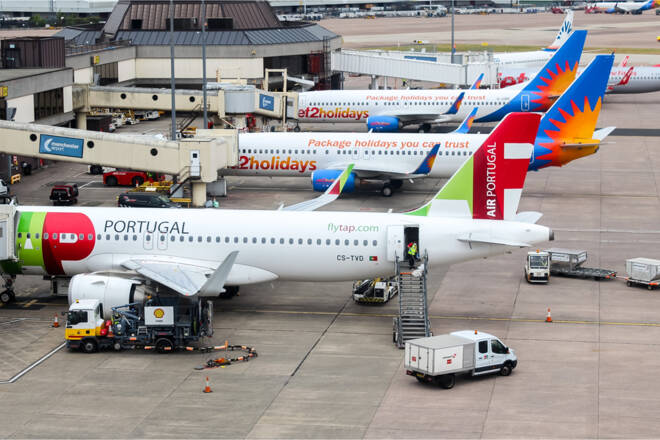Europe and Middle East at the Forefront of Tourism Recovery
Published: Jul 28, 2022, 08:53 GMT+00:00
The airport and international highway queues and turmoil prove that global tourism is on recovery path.
Tourism has already recorded a huge increase in the first quarter of this year. Holiday destinations welcomed almost three times more foreign tourists than in the same period of 2021, Golden Brokers report.
According to the United Nations World Tourism Organization (UNWTO), international tourism increased by 182 percent year on year between January and March this year. Tourist destinations across the world have welcomed around 117 million foreign tourists. In the same period of 2021, it was only about 41 million. However, the global volume of international tourism still reaches only 39 percent of the 2019 level.
The fastest return to pre-covid levels has been recorded in Europe, which is at the forefront of the global tourism recovery. The Middle East also recorded year-on-year growth of more than 100 percent. However tourism has not been restored to pre-covid levels. The Middle East remained 59 percent below 2019 levels.
The recovery of tourism in Asia-Pacific is by far the slowest. Although there was a 64 percent year-on-year increase in tourism in the first quarter of this year, this part of the globe still remains 93 percent below 2019 levels. Mainly because of the ongoing coronavirus restrictions.
In terms of individual continents, Europe was the most successful in reviving tourism, where the volume of international tourism increased by 280 percent year-on-year. According to the UNWTO, this is a consequence of the strong demand to travel between countries within Europe.
Revenues recover faster
Revenues from tourism are recovering slightly faster than the absolute numbers of foreign tourists. According to the UNWTO, revenues from global international tourism increased by four percent year-on-year in real terms in 2021, but revenues reached less than 40 percent in 2019. According to expert estimates, tourism lost a total of $ 2 trillion in 2020 and 2021.
The best result last year was recorded in Europe and the Middle East, where income from tourism climbed approximately to the 50 percent of 2019 level at the end of 2021. At the same time, the average expenditure per stay increased. While in 2019 it was an average of a thousand dollars per person, in 2021 it was already $ 1,400.
Optimistic outlook
However, entrepreneurs and experts in the field of tourism are optimistic about the outlook for this and the following years. According to a UNWTO survey, up to 83 percent of respondents in the field are convinced that this year will be much better than last year.
At the same time, they are worried about the possible recurrence of anti-epidemic restrictions. Uncertainty is also increased by the ongoing war in Ukraine. Both of these factors can prolong the resumption of tourism after a two-year covid episode.
Almost half (48 percent) of respondents believe that the volume of international tourism will return to pre-pandemic levels by 2023. At the same time, in January this year, only 32 percent of respondents thought so. 44 percent of respondents think that international tourism will not resume until 2024 or later. In January, it was 64 percent. It can therefore be seen that, despite the risks, entrepreneurs and tourism experts are now more optimistic than at the beginning of 2022.
The greatest optimism about tourism can be observed in the Middle East, where 63 percent of respondents believe in a full recovery after the covid in 2023. It is followed by Europe and Africa with 56 percent, while respondents in Asia-Pacific believe the least in recovery over the next year, at just 26 percent.
The World Tourism Organization predicts that this year will be slightly more successful in terms of tourism than originally expected. The upward revision of the outlook was mainly due to a large increase in flight ticket reservations. The volume of international air transport this year could be between 55 and 70 percent of the 2019 level.
However, there is still an increased risk associated with the possible resumption of anti-epidemic restrictions or the ongoing war in Ukraine. The interest in traveling abroad may also be dampened by high inflation, which in the area of tourism mainly concerns fuel prices.
Analysis by Golden Brokers
About the Author
Promotional Contentcontributor
FXEmpire provides its readers and partners with this section in order to share the value proposition and products that may be relevant for FXEmpire
Advertisement
